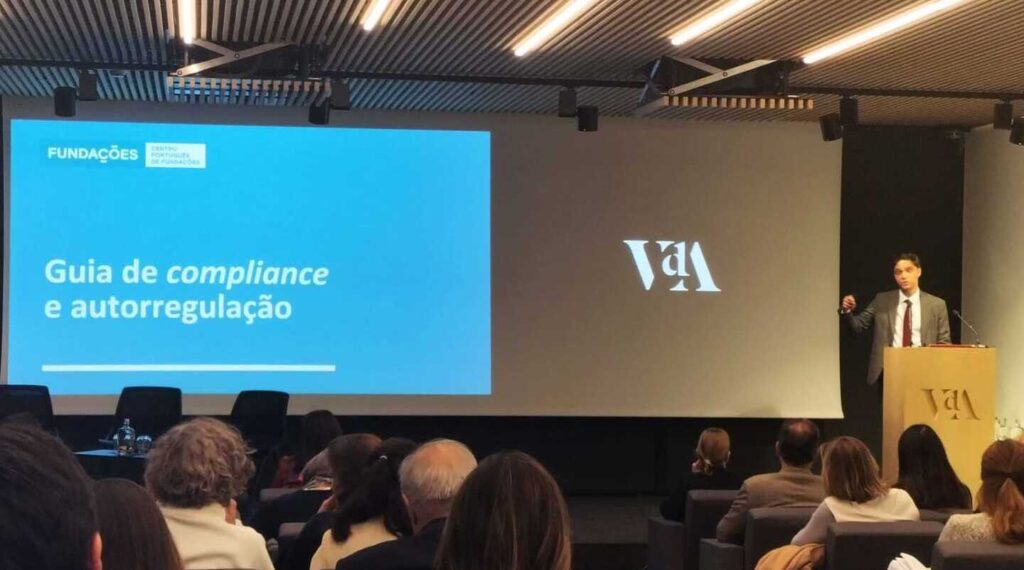From obligation to opportunity: How compliance strengthens philanthropy

With one of the most stringent legal frameworks for foundations, including the second-highest minimum capital requirement (250,000 euros) in Europe, and ranking 116th in the World Giving Index 2024, Portugal nonetheless boasts a dynamic and vibrant philanthropic sector. With more than 800 foundations, and making a significant impact in social, cultural, health, education, innovation, and other areas, the sector continues to thrive despite challenges.
In last year’s World Giving Index report, recommendations for civil society organisations included “Ensure good governance and be transparent about the impact to build public trust.” In Portugal, following a few but highly publicised scandals, public recognition and trust have become major goals for the sector. However, public knowledge and perception of the work that foundations do remain limited, often associated with historic, well-known, and larger institutions or public sector foundations.
With about 150 members, including some of the most impactful foundations in Portugal, the Portuguese Foundation Center (CPF) views transparency and accountability as a cornerstone of effective governance in the philanthropic sector. These principles are vital to building trust and ensuring institutional legitimacy. Recognising the challenges foundations face in meeting these expectations, the Center developed a comprehensive Compliance and Self-Regulation Guide that not only addresses legal requirements but also provides strategies to increase areas such as reporting, transparency, and governance practices while reinforcing public confidence.
The recently launched Guide (December 2024) aims to provide an accessible and clear framework for meeting obligations under the Portuguese Framework Law for Foundations. This includes guidance on reporting, maintaining governance records, and ensuring transparency in financial management – all of which promote a transparent operational framework that underscores a foundation’s commitment to accountability. However, the guide emphasises that compliance is only the first step; foundations must go beyond legal adherence to achieve true public trust.
Beyond legal obligations, the guide underscores the importance of best practices within and outside the sector. It provides templates for creating up-to-date instruments like codes of conduct, whistleblowing policies, and corruption prevention plans. Additionally, it promotes and encourages the integration of gender equality and inclusivity policies, alignment with societal goals, and adherence to international benchmarks. By adopting these practices, foundations demonstrate their commitment to broader values that resonate with both local and global communities. For example, implementing environmental policies or promoting digital transformation reflects an organisation’s global commitment and forward-thinking approach, enhancing its perception, reputation and operational effectiveness.
Another crucial aspect of the guide is its provision of tools for self-assessment. Checklists are available to help foundations evaluate their performance and promote a culture of continuous improvement. These tools enable foundations to identify areas where they can enhance their governance practices. For instance, a foundation might use these checklists to verify whether it has adequately communicated its governance structure or ensured that its financial disclosures meet transparency standards. Internal audits, supported by the guide’s resources, further strengthen accountability and ensure that foundations remain aligned with their mission and values.
Self-regulation emerges as a central theme in the guide, empowering foundations to take ownership of their governance and transparency processes.
By establishing ethical governance frameworks, foundations can proactively address challenges such as conflicts of interest and accountability gaps, while transparent communication with donors, beneficiaries, and the general public is strongly reinforced and encouraged.
Self-regulation allows foundations to position themselves as credible and reliable partners in tackling societal issues – not just as individual institutions but as a sector setting a benchmark for excellence. For example, adopting anti-corruption measures and whistleblower protection policies signals a foundation’s dedication to ethical standards, inspiring confidence among stakeholders, including grantees, funders, staff and the community.
Furthermore, foundations that embrace self-regulation become role models not just within the philanthropy sector, but also for the broader social economy ecosystem. This means inspiring nearly 75,000 institutions in Portugal to reinforce the value and reliability of the non-profit sector as a whole.
But why to go that extra mile? Why self-regulate?
Because it anticipates challenges, enhances credibility and contributes to a more robust and trustworthy philanthropic ecosystem.
The Compliance and Self-Regulation Guide aims to be more than a roadmap for meeting legal obligations; it is a call to action for foundations to embrace a proactive and transformative approach to governance. By embedding ethical practices, fostering transparency and demonstrating measurable impact, foundations can navigate complex challenges with confidence and become trusted leaders in the non-profit sector and society.
This collective commitment will not only enhance individual credibility but will also strengthen the entire ecosystem, ensuring that foundations are well-equipped to meet the evolving needs of society while securing lasting public trust.
The Guide is available to CPF member foundations since it is directly related to Portuguese foundational laws.
Authors


